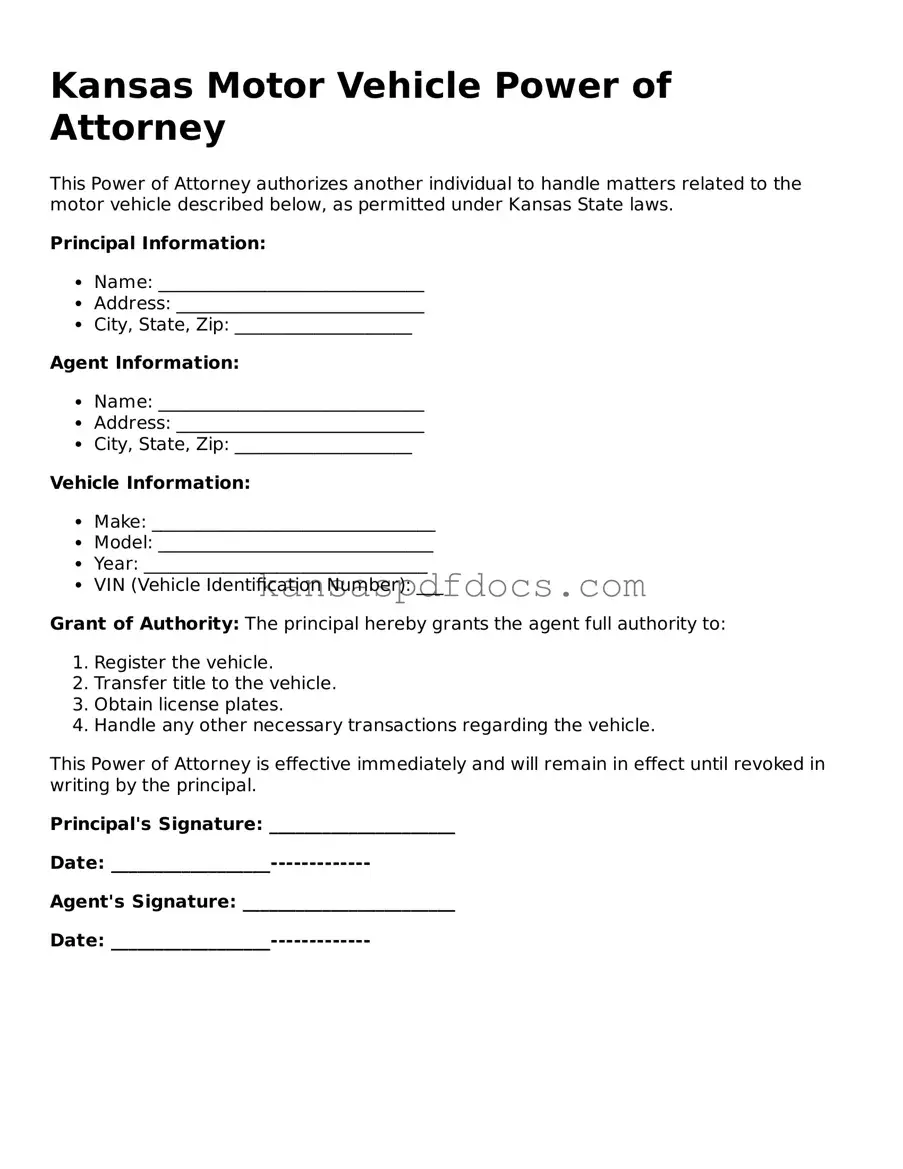Valid Motor Vehicle Power of Attorney Template for Kansas State
The Kansas Motor Vehicle Power of Attorney form is a legal document that allows an individual to designate another person to handle specific motor vehicle-related transactions on their behalf. This form is essential for those who may be unable to attend to these matters personally due to various reasons, such as illness or travel. By granting this power, the principal ensures that their vehicle-related affairs are managed efficiently and effectively.
Access This Form Now

Valid Motor Vehicle Power of Attorney Template for Kansas State
Access This Form Now
Your form isn’t ready yet
Edit and finalize Motor Vehicle Power of Attorney online without printing.
Access This Form Now
or
Get PDF Form
